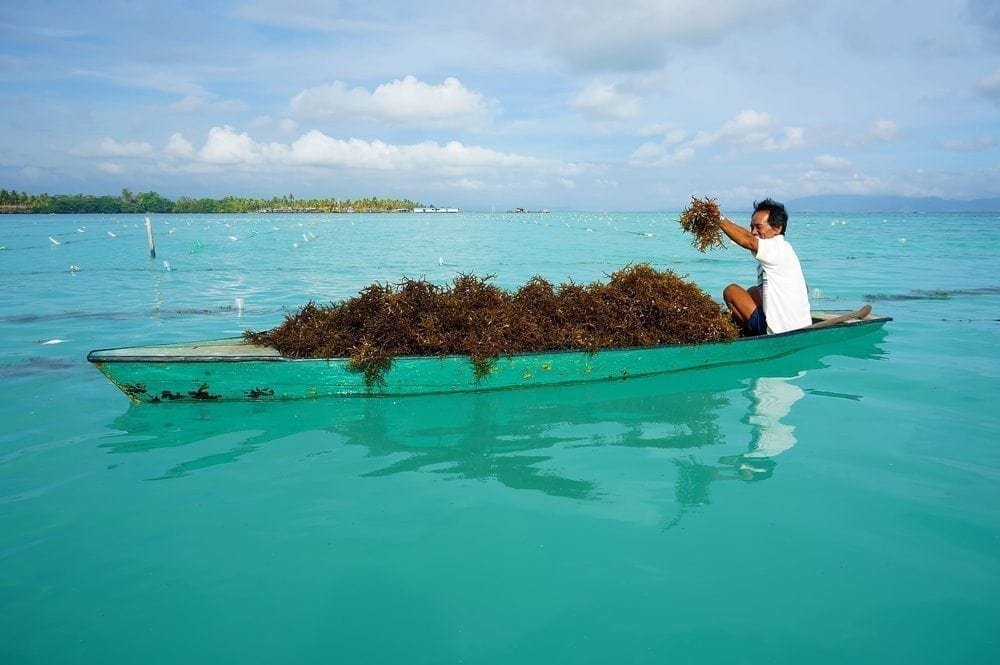A rising number of valuable uses being found for seaweed – from food and fertiliser to pharmaceuticals and industrial gels – is driving the rapid growth of an industry that could easily and needlessly drop into some of the same pitfalls previously experienced in both agriculture and fish farming.
Avoiding expensive mistakes
Drawing on the expertise of 21 institutions worldwide, UN University’s Canadian-based Institute for Water, Environment and Health and the Scottish Association for Marine Science, a UNU associate institute, have published policy advice to the burgeoning, multi-billion dollar industry to help it avoid expensive mistakes and pursue best practices, backed by relevant case studies involving crops like bananas and shrimp.
The authors note that seaweed farms now produce more than 25 million metric tonnes annually. The global value of the crop, $6.4 billion (2014), exceeds that of the world’s lemons and limes.
‘There is an ever-increasing demand being placed on the marine environment through renewable energy, traditional aquaculture, fisheries and transport, so we must ensure that any new industry works alongside these sectors in order to preserve, and indeed improve, the health of our oceans.’
NIDHI NAGABHATLA
Author and program officer, UNU-INWEH
Seaweed farming has grown from the late 1950s into an industry offering sustainable employment in developing and emerging economies, notably China (which produces over half of the global total of seaweed – 12.8 million tonnes) and Indonesia (27% of global production – 6.5 million tonnes). Other major producers include the Republic of Korea and the Philippines.
’Environmentally benign’
With fisheries stagnating, cultivating seaweed helps fill a gap and ‘is widely perceived as one of the most environmentally benign types of aquaculture activity, as it does not require additional feed or fertilisers’, the authors say.
Consequently, it has been actively promoted by government initiatives, particularly in many developing countries where communities have reduced access to alternative livelihoods or are involved in destructive fishing methods like dynamite fishing.
Increasingly, seaweed cultivation is also being integrated with intensive fish farming to provide nursery grounds for juvenile commercial fish and crustaceans, and to filter undesired nutrients, improve the marine environment and reduce eutrophication.
Indirectly, seaweed farming has reduced over-fishing in many regions, providing coastal communities with an alternative livelihood. In some places, women have become economically active for the first time.
 Play Video about This Rock Might Just Save The World
Play Video about This Rock Might Just Save The World Play Video about Play 2 hours of rock
Play Video about Play 2 hours of rock Play Video about Play 2 hours of brook
Play Video about Play 2 hours of brook Play Video about Play 2 hours of sheep
Play Video about Play 2 hours of sheep











































